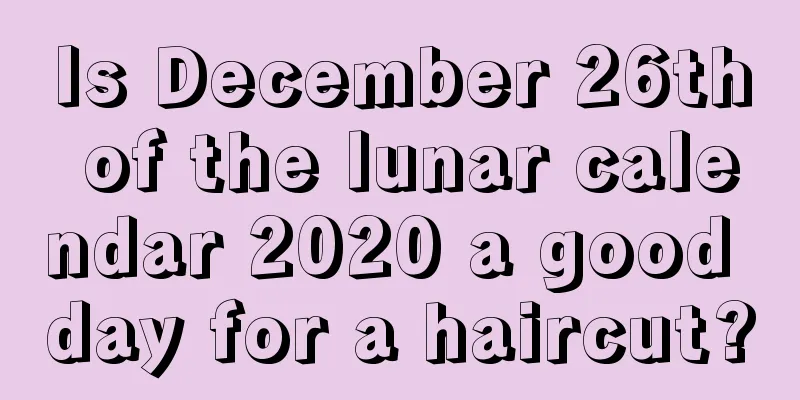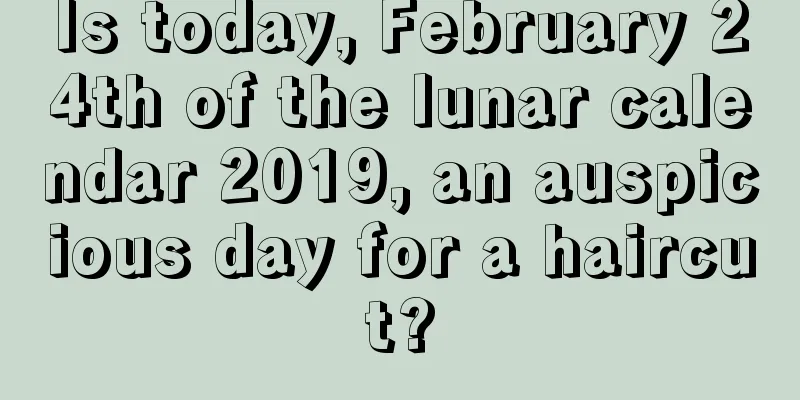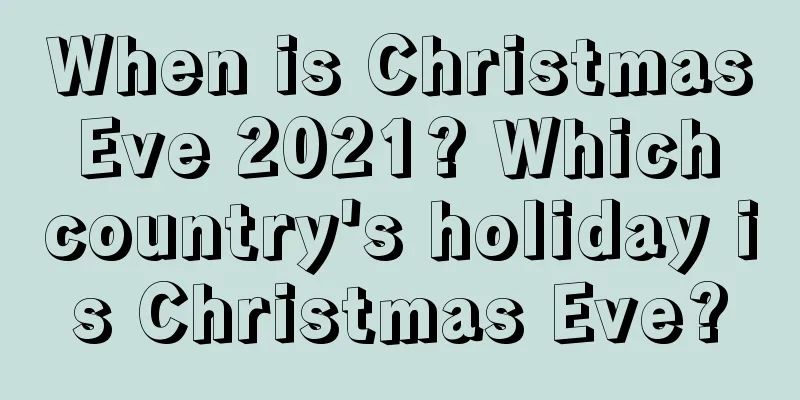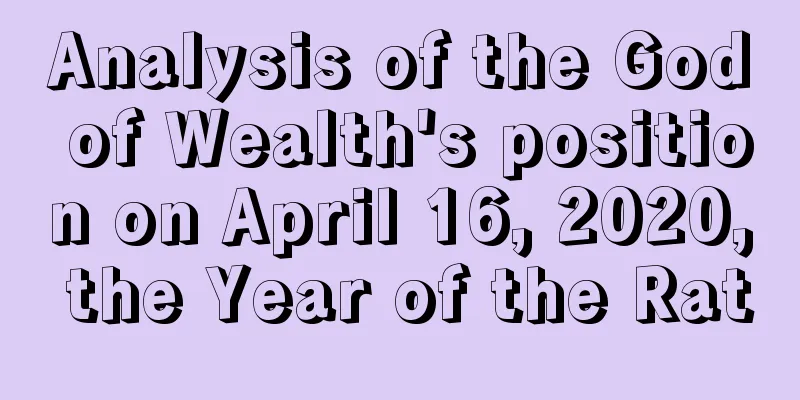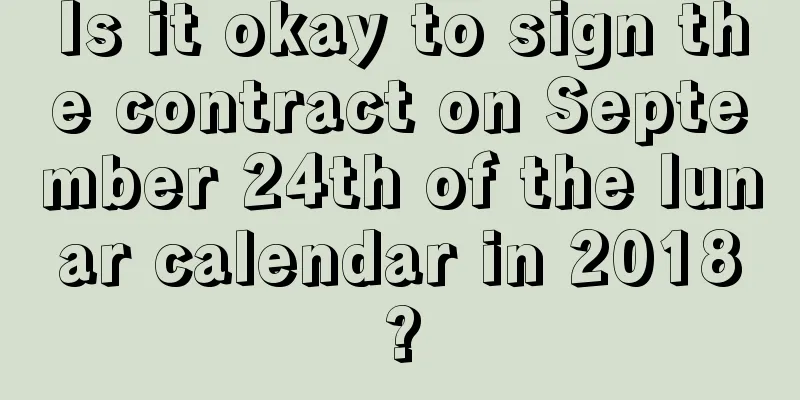Can’t tell the difference between Chinese New Year’s Eve and New Year’s Eve? Detailed explanation of the difference between the Spring Festival and New Year's Eve
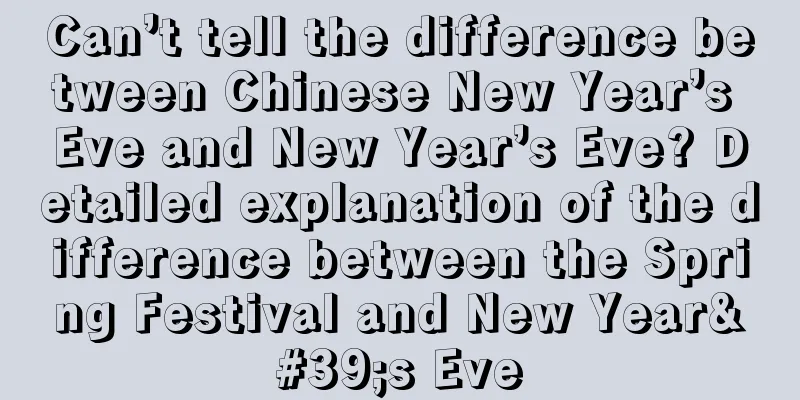
|
Introduction: When we Chinese people talk about the Chinese New Year, the most important ones are two festivals, one is the Spring Festival and the other is New Year’s Eve. But do you know what is the difference between the Spring Festival and New Year’s Eve? What is the difference between the two? Next, let’s take a look at this issue together! There is no end to the topics about the Spring Festival, so do you want to know more about it? Just continue to wander in Mr. Shui Mo’s Spring Festival special ocean! Simply put, the broad definition of the Spring Festival includes Chinese New Year and New Year's Eve; Chinese New Year, New Year's Eve and New Year's Eve are all on the same day, and New Year's Eve specifically refers to the night of New Year's Eve, which is New Year's Eve. The Spring Festival in a specific sense refers to the first day of the Lunar New Year. According to relevant information, New Year's Eve is one of the most important traditional festivals in my country. It refers to the last night of the lunar year, that is, the night before the Spring Festival. Because it often falls on the 30th or 29th day of the twelfth lunar month in the lunar calendar, this day is also called New Year's Eve. The last day of the year is called "Sui Chu" and the night of that day is called "New Year's Eve". On New Year’s Eve, people often stay up all night, which is called Shousui. Su Shi has a poem "Keeping the New Year's Eve": "Children force themselves not to sleep, and stay up all night to have fun. For more exciting content, please pay attention to the weather calendar channel." On New Year's Eve, not only do people have to clean the house inside and out, but they also put up door gods, spring couplets, new year pictures, and hang door cages. People also change into new clothes with festive colors and patterns. The Spring Festival, also known as the Lunar New Year, is commonly known as the Chinese New Year. The Spring Festival, commonly known as the "New Year's Festival", is the most important traditional festival of the Chinese nation. Since the first year of Emperor Wu of Han's Taichu reign, the first day of the first lunar month of the summer year (lunar calendar) has been regarded as the "beginning of the year" (i.e. "year"), and the date of the New Year's Festival has been fixed and has continued to this day. The New Year’s Day was called “New Year’s Day” in ancient times. After the Revolution of 1911, the Gregorian calendar (solar calendar) was adopted to count years, and January 1 of the Gregorian calendar was called "New Year's Day", and the first day of the first lunar month was called "Spring Festival". Seasonal festivals are also called “traditional festivals”. They have a long history and are widely spread, and are extremely popular, mass, and even national in nature. The traditional, folk, real "New Year" starts from the La Festival on the eighth day of the twelfth lunar month or the Kitchen God Festival on the twenty-third or twenty-fourth day of the twelfth lunar month, and ends on the fifteenth day of the first lunar month, with "The Second Day of the Second Month of the Second Month of the Dragon Raising its Head", with New Year's Eve and the first day of the first lunar month as the climax. For more exciting content, please pay attention to the Weather Calendar Channel. Celebrating the New Year has a long history, originating from the worship of gods and ancestors at the beginning and end of the year during the Shang Dynasty. During the Chinese New Year, the Han Chinese and many ethnic minorities in China hold various activities to celebrate. The main contents of these activities are to worship gods and Buddhas, pay tribute to ancestors, get rid of the old and welcome the new, welcome the new year and pray for a good harvest. The activities are rich and colorful, with strong national characteristics. The Spring Festival and New Year's Eve are combined into one. Because the Spring Festival and the New Year are closely connected, and coupled with the needs of the times, people gradually combined these two traditional festivals into one. In terms of time, the Chinese New Year is the last day of the year, which is the end of the year. The Spring Festival is the beginning of the year, and the first day of the New Year is the first day of spring in the lunar calendar, so it is called the Spring Festival, which tells people that from this day on, spring has arrived and the new year has begun. In the past, people called this time the Chinese New Year, which is "New Year's Eve". With the introduction of the Gregorian calendar, the "New Year's Day" on the first day of the first lunar month was changed to a synonym for the Gregorian New Year. In addition, after the 1960s, political factors such as "breaking the old and establishing the new" and "breaking superstition" gradually faded the significance of the year. In recent years, the words "New Year's Eve" and "Spring Festival" have been printed on some desk calendars, wall calendars, and calendars. However, in public media and propaganda, the New Year and the Spring Festival are confused. I really don’t know whether the Chinese traditional festival “New Year”, which has been passed down for thousands of years, will be replaced by the “Spring Festival”. It’s hard to say. Summary: The above article provides us with a detailed analysis of the specific differences and meanings of the Spring Festival and New Year’s Eve. You can take a look at it. After reading it, do you have a general understanding of the Spring Festival and New Year’s Eve? After reading this article, there are more exciting content in the Spring Festival special topic, let’s take a look! |
>>: Do you know such a Spring Festival? There is such a name for the Spring Festival!
Recommend
Which days in the twelfth month of the lunar calendar in 2021 are available for car pick-up? Recommended auspicious day for car pick-up
If you want the new car to have good feng shui, it...
What constellation is the thirteenth day of the first lunar month in 2019? What are your personality traits?
People born on different days have different desti...
What is the fate of a baby boy born on the tenth day of the eighth lunar month in 2018?
Children are always the most cared for in every fa...
When is the Grain Full Moon in 2017 and where is the God of Happiness?
Introduction: In our traditional culture, the God ...
Feng Shui fish suitable for people born in the Year of the Rabbit
Introduction: Rabbits are smart and cute, and eve...
Is the fifth day of the seventh lunar month in 2019 a suitable day for moving graves? Is today an auspicious day for moving graves?
Introduction: Relocating graves is a very importan...
Can I lend money to others during the Dragon Boat Festival in 2019? Is there anything unsuitable during the Dragon Boat Festival in 2019?
Introduction: The Dragon Boat Festival can be ausp...
Is it a good idea to open a new store on May 14th of the lunar calendar in 2018?
The fifth month of the lunar calendar is consider...
Is it a good idea to give birth to a baby on the sixth day of the twelfth lunar month in 2018?
Ancient China was a country that believed in "...
Is the 14th day of the seventh lunar month in 2021 a good day? Can I travel far away?
In the seventh month of the lunar calendar, early ...
Is it okay to get engaged on Xiaonian? Can I get engaged on Xiaonian in 2019?
Engagement is the prelude to marriage, and Little ...
Can we install the door on the 14th day of the second lunar month in 2022? Which direction should the front door face for good career?
The second month of the lunar calendar is the midd...
What are the auspicious days in the seventh month of the lunar calendar in 2019? Is the Ghost Festival in the seventh month of the lunar calendar?
Introduction: Different days represent different m...
Is it possible to move house during the Grain Full season in 2019? What are the do's and don'ts on this day?
Grain Full is one of the 24 solar terms and the se...
What time is the Beginning of Heat on the Beginning of Heat Day in 2021? What are the folk customs on the Beginning of Heat?
After the Beginning of Autumn, the weather gradual...
